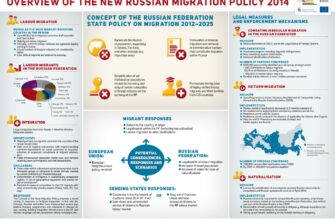
In a development highlighting the shifting dynamics of international relations, former President Donald Trump has outlined a new strategy regarding the ongoing conflict in Ukraine. This plan involves a modified approach to military assistance and introduces a specific timeframe for the pursuit of a peace agreement, backed by economic threats against Russia.
Rethinking Military Aid Pathways
Following the presidential election, European officials reportedly began exploring alternative methods to ensure the continued supply of American armaments to Ukraine, anticipating a potential pivot in U.S. policy. The framework now proposed appears to be a direct result of these considerations. Under this new model, the United States would sell military equipment not directly to Ukraine, but to its European NATO allies. These nations would then undertake the responsibility of transferring the acquired weaponry to Kyiv.
This mechanism, discussed during recent high-level meetings including a NATO summit, is presented as a means to sustain vital military support for Ukraine while recalibrating the financial and logistical roles within the transatlantic alliance. Initial reactions suggest this concept has found a degree of receptiveness among European partners.
The Deadline and the Economic Gauntlet
Adding a distinct element of pressure, President Trump has issued a public ultimatum to Moscow. He announced a firm deadline: if a peace accord is not finalized with Ukraine within 50 days, the United States is prepared to implement severe economic measures. Specifically, he referenced the imposition of “very tough tariffs,” characterizing them as “secondary tariffs” at a punitive rate of “about 100%.”
Subsequent clarifications indicated that this threat encompasses a 100% tariff on direct Russian imports to the U.S., alongside potential secondary sanctions targeting other countries that continue to purchase Russian oil. The practical leverage of the direct tariff threat, however, has been questioned, given the relatively modest volume of direct Russian exports to the United States market. The more impactful aspect would likely be the secondary sanctions on energy buyers, though the precise scope of these was not detailed.
Arsenal on Offer
While the complete list of potentially transferable systems remains subject to ongoing negotiations, initial discussions have highlighted critical air defense capabilities, particularly Patriot missile batteries, as a primary focus. Ukraine has consistently emphasized the urgent need for additional Patriot systems to counter aerial threats. Other items under consideration for transfer via European allies include short-range missiles, howitzer ammunition, and medium-range air-to-air missiles.
Underlying Motivations
Several strategic considerations appear to drive this revised approach. Domestically, by facilitating sales to allies who then supply Ukraine, the administration may seek to mitigate political fallout from direct aid expenditures, aligning with campaign rhetoric focused on reducing the immediate U.S. financial burden. There is also a clear fiscal component; the sale of high-value systems like Patriot batteries represents substantial revenue for American defense contractors, a point that aligns with a transactional perspective on international relations. Furthermore, delivering systems already stationed or being rapidly deployed in Europe could potentially shorten delivery timelines to Ukraine compared to direct shipments from the continental United States or initiating new production cycles. Finally, some within the administration reportedly view this renewed emphasis on military provision, channelled through allies, as a signal to Moscow intended to underscore the President`s frustration with the prolonged conflict.
European Engagement and Outlook
Several key European nations, including Germany and Norway, have reportedly signaled their willingness to participate in this arms acquisition and transfer framework, with anticipation that others will follow suit. Recent diplomatic engagements, such as President Trump`s discussions with the German Chancellor and the NATO Secretary General, indicate active progress in defining the operational specifics. The introduction of a 50-day timeline, however, injects a notable element of urgency into the already complex diplomatic and military landscape.







